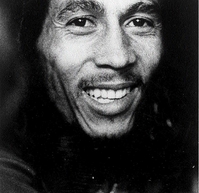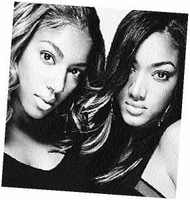Uganda moves to reggae beat - Though Marley mania holds firm, new interests abound
Published: Sunday | June 7, 2009

Bob Marley - File
BONN, Germany: Though the global economic recession has flushed the fortunes of Jamaican products like alumina down the toilet, at least one signature export is thriving in transatlantic exchange.
Reggae, a genre still synonymous with the deceased island singer Bob Marley, is alive and well in the east African state of Uganda, whether in remote areas of the forested hinterland or the densely populated capital Kampala.
"He's not like Lucky Dube," Sibedde Kiryowa, contributing editor to Ugandan daily The New Vision, told The Gleaner last Wednesday, indicating that the South African singer fell well short of the Jamaican superstar's stature. "Bob Marley is an icon!"
Kiryowa's effusive praise for Marley might be emblematic of the belief that the Rastafarian singer, who passed away almost three decades ago, is the omnipresent gauge by which all reggae performers - Jamaican and foreign - have been and will be judged.
stinging rebukes for buju
The looming shadow of the legend, who emerged from the socio-economic backwaters of Trench Town, Kingston, spurred current reggae artiste Buju Banton recently to desecrate, in the minds of some industry commentators, the shrine of the reggae demigod. His call for a realignment of the 'greatest' label drew stinging rebukes at home, but some Ugandans are willing to share Marley's hallowed ground with other roots reggae performers, though a few inches below his pedestal.
"Gregory Isaacs, I like his music," said Stephen Ouma Bwire, general secretary of the Uganda Journalists Union, one of nearly 1,500 media practitioners attending the three-day Deutsche Welle Global Media Forum in Bonn, Germany. "Next to Bob Marley is Gregory Isaacs. His music is appealing."
Reggae's popularity is at its summit when stars from 'The Rock' grace concert stages in the motherland and also on the club scene, but radio is still the major medium for spreading the rhythm among the masses. Though not hogging large blocks on air, reggae continues to have a strong presence in radio land.
"It's segmented. Reggae is played among the 250 FM stations. Some slot it in here and there," said Andre-Patrick Luwandagga, who works for the Uganda Broadcasting Corporation, which allots a one-hour weekly programme exclusively to reggae, while juggling songs throughout the week.
Younger audiences are thronging more generationally attractive acts, such as Brick and Lace, dancehall duo Tanto Metro and Devonte, and crossover artiste Shaggy, who last month turned on his 'Mr Lover Lover' charm to draw thousands at a concert in Kampala.
"Sean Paul is going to overtake Shaggy in the years to come," said Bwire, explaining the transitional dynamics of popularity in Uganda. "Reggae and dancehall are big, very big."
hybrid sound
The burgeoning interest is becoming more infectious than swine flu. Reggae and dancehall have spawned a growing generation of Ugandan youths who are eager to wear the shoes of their musical forbears. Ragga artistes like 28-year-old Peter Miles, who has collaborated with Briton General Levy on the intensely popular Ooh Aah, are experimenting with Caribbean music, while depressing their own cultural fingerprint for a hybrid sound that crosses ethnic and geographic boundaries.
"They (Ugandan artistes) mix reggae up. They blend it with an Afro beat. It's not really pure reggae, though some music is (pure)," said Kiryowa.

Brick and Lace has created a niche market in Uganda. - Contributed
andre.wright@gleanerjm.com




















